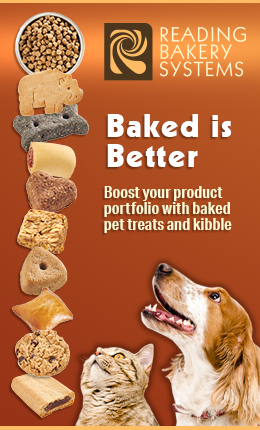Few pet owners in Venezuela can afford to feed their pets, leading to pet malnutrition or abandonment.
The long economic and political crisis in Venezuela has severely soured the local pet food market in many ways. Along with hyperinflation, there is a generalized scarcity of raw inputs to produce pet food, challenging local companies to keep their businesses running and distribute these products regularly. Most importantly, consumers no longer can afford to pay for pet food products.
Owning and taking care of a pet in Venezuela has become quite luxurious. As inflation rises every day, it is complex and pointless to analyze the real cost of a package of dry dog or cat food. Yet local and international sources revealed that the cost of buying one kilo of dog food is equal to 10 to 20 days' salary for a minimum-wage worker.
From the supply side, there are just a few local companies that can produce pet food products, although with many restrictions. On the other hand, imports are not viable due to the difficulty of obtaining foreign currency in the formal market.
Venezuelan pet population decreasing
As a result of the economic recession and the shortage of pet food and overall food products, pet owners are increasingly abandoning their pets in the streets of Venezuela, ravaging pets' health and nutrition.
Thus, it is not surprising that the pet population is decreasing in the country, either due to malnutrition or abandonment. According to our own estimates, Venezuela has around 3.5 million dogs and cats. As the local industry is producing dog and cat food at a minimum capacity, pet nutrition suffered a significant reduction in caloric penetration, with just around 25 grams per pet daily, the lowest in south America.
Local pet owners are increasingly substituting pet food with food scraps, homemade preparations using chicken feet and kidneys or, often, swine food.
Shortage of pet food brands
Other sources show that the few pet owners with greater purchasing capacity must wait months to find their preferred brand, having to feed their dogs and cats with another brand or with a different product variety not suited for their pets' age or breed.
For a long time, only a few brands have been available at local supermarkets. For instance, Purina brands Dog Chow, Perranina and K-nina are the most commonly found. Other brands sometimes found are Super Can and Dogourmet, both manufactured by Empresas Polar.
Situation is reshaping pet ownership and nutrition
As pet food products are essential for dogs and cats, the economic situation of Venezuela is reshaping entirely the meaning of pet ownership and pet nutrition in the country. At this point, it remains uncertain when the current economic events could change and moreover, for how long local companies could continue to supply the local market in the context of scarcity and extreme prices.
by Ivàn Franco
Source: Pet Food Industry
You could be interested: Partnering customers in a new pet food era








































































